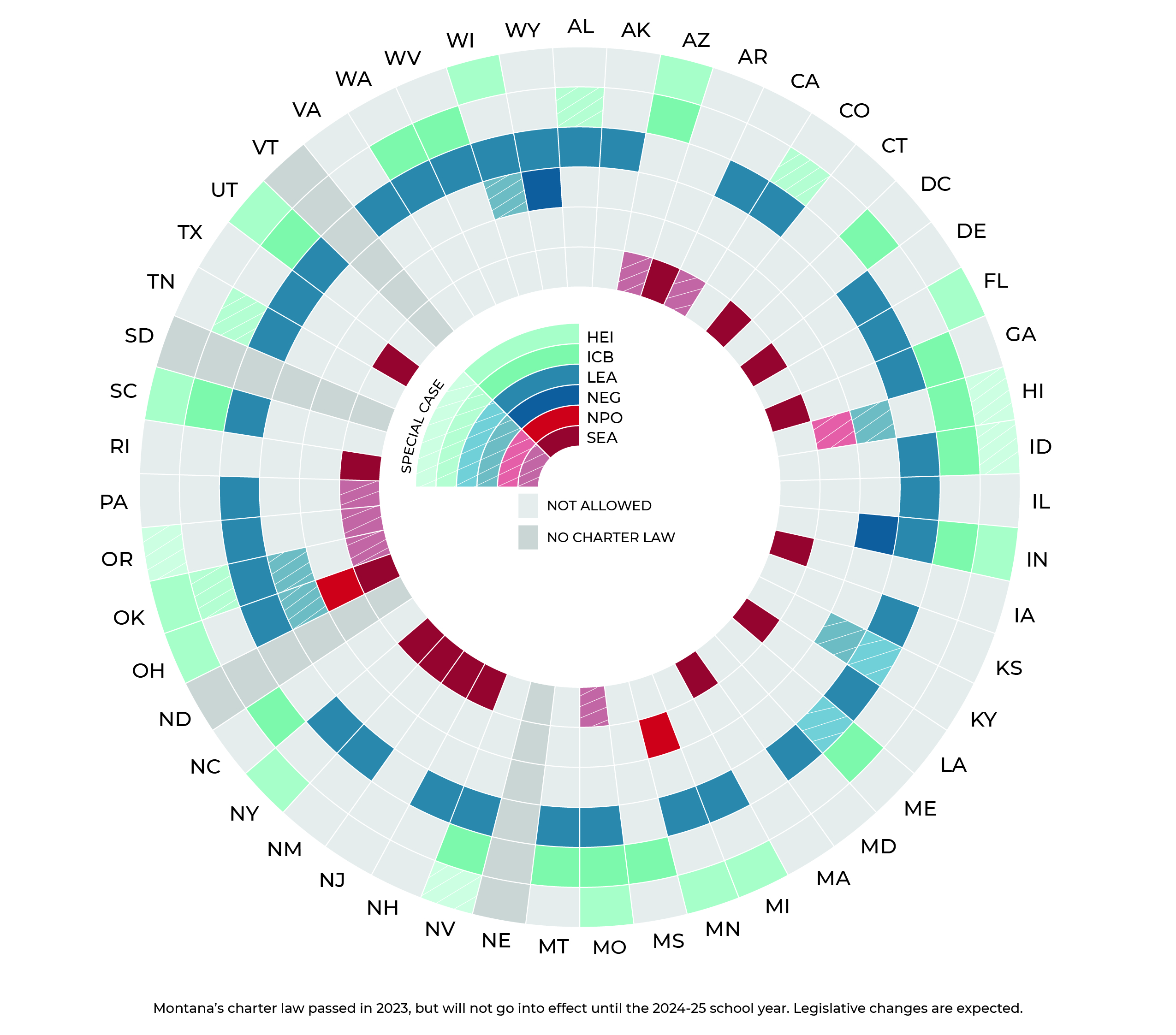State laws empower a variety of agencies to authorize charter schools, creating a mix of authorizer types, characteristics, and powers in each state. NACSA identifies six types of authorizers:

TYPE OF AUTHORIZER |
ADVANTAGES |
DISADVANTAGES |
| Higher Education Institution (HEI) | Independent; may have considerable education expertise; access to university resources and partnerships; research capabilities may lead to innovation and best practices. |
May lack experience with K-12 education; may intentionally or unintentionally impose a particular educational philosophy or method on schools; community buy-in may be limited; resources may be mainly reserved for higher education; perceived lack of public accountability.
|
| Independent Chartering Board (ICB) | Singular focus on authorizing can build substantial expertise; ability to build authorizing practices from scratch, rather than adapt prior practices. |
Community buy-in may be limited; appointed board members perceived as less accountable to voters than elected officials.
|
| Local Education Agency (LEA) | Can offer depth of knowledge and expertise as well as services and facilities; charters can be an element of a portfolio of district schooling options. Local approval maximizes political and community acceptance and support for charters. |
Primary focus on traditional district schools; may not embrace—or may be hostile to—chartering; potential friction between charters and other district schools.
|
| Non-Educational Government Entity (NEG) | Brings political support, high visibility, local knowledge, and access to public and private resources. |
Lack of inherent educational expertise or mission; sustainability uncertain in the face of political turnover and shifting priorities.
|
| Nonprofit Organization (NPO) | Independent; may be highly visible and credible; may foster innovative schools; can bring valuable areas of expertise. |
May lack experience with K-12 education; resources may be mainly reserved for organization’s primary mission; lack of public accountability.
|
| State Education Agency (SEA) | Educational knowledge, expertise and capacity; statewide authority; allows charters to be an element of a state portfolio of public schooling options. |
Responsibility for all public schools in the state limits focus on charters; may tend to emphasize compliance rather than fostering innovation.
|
Download Charter School Authorizer Types Across the Country